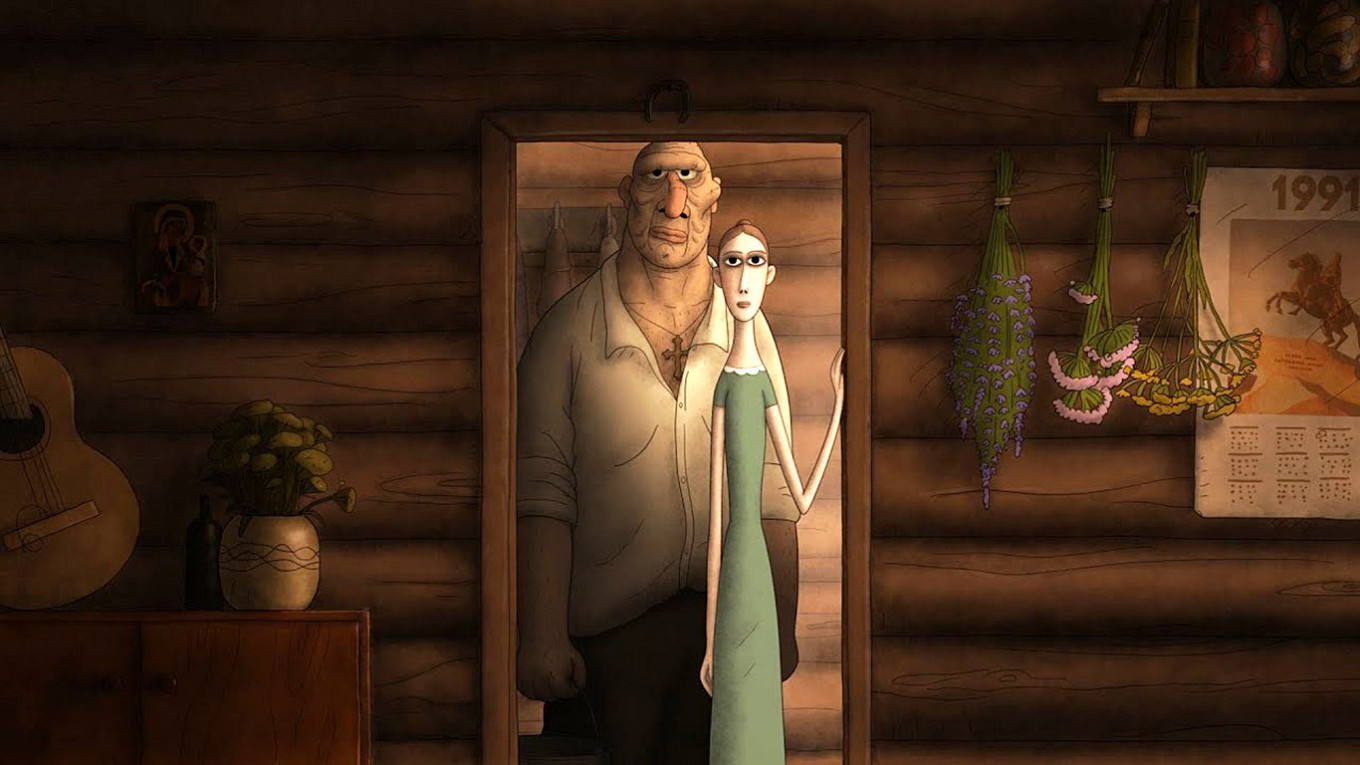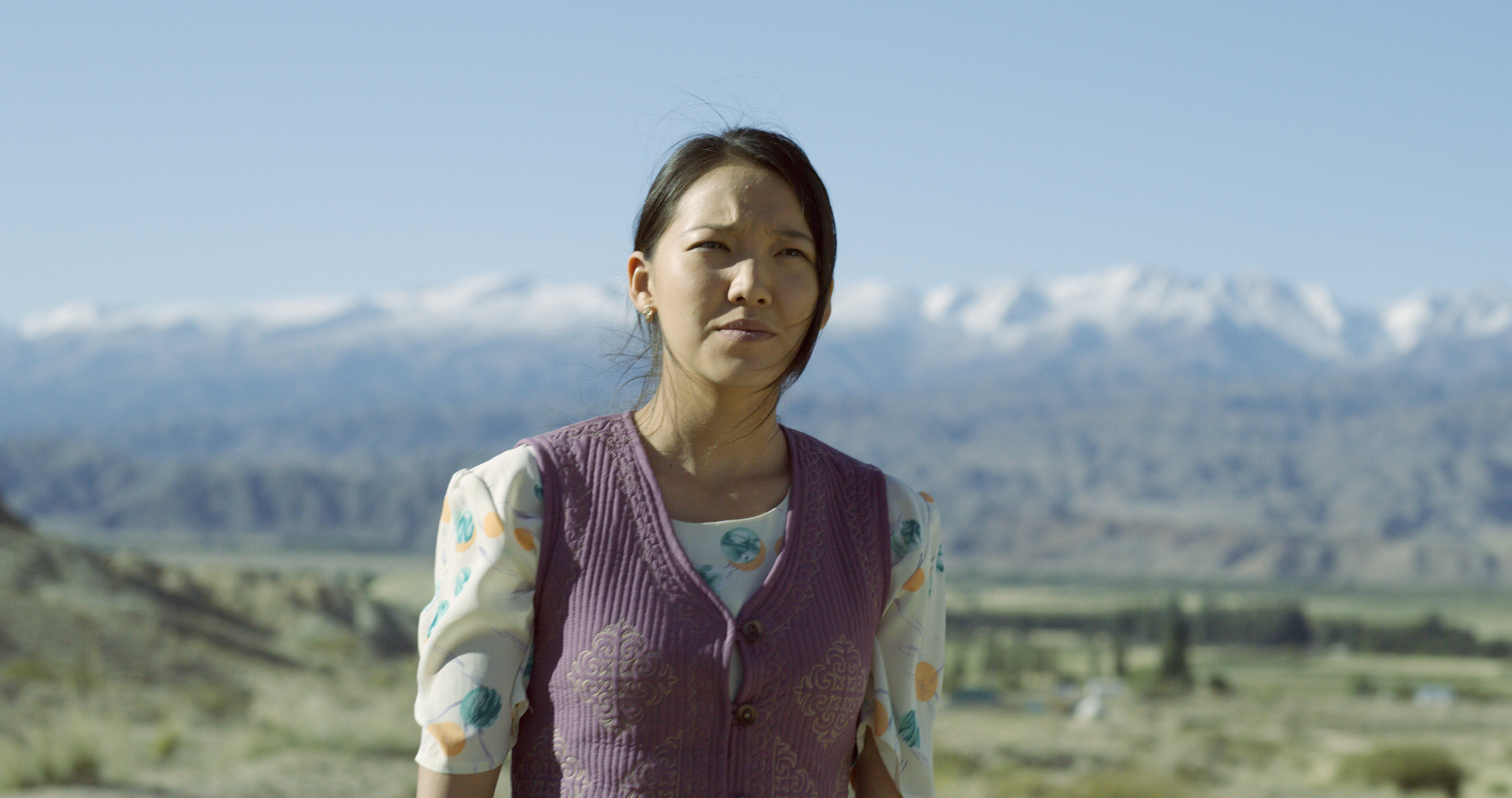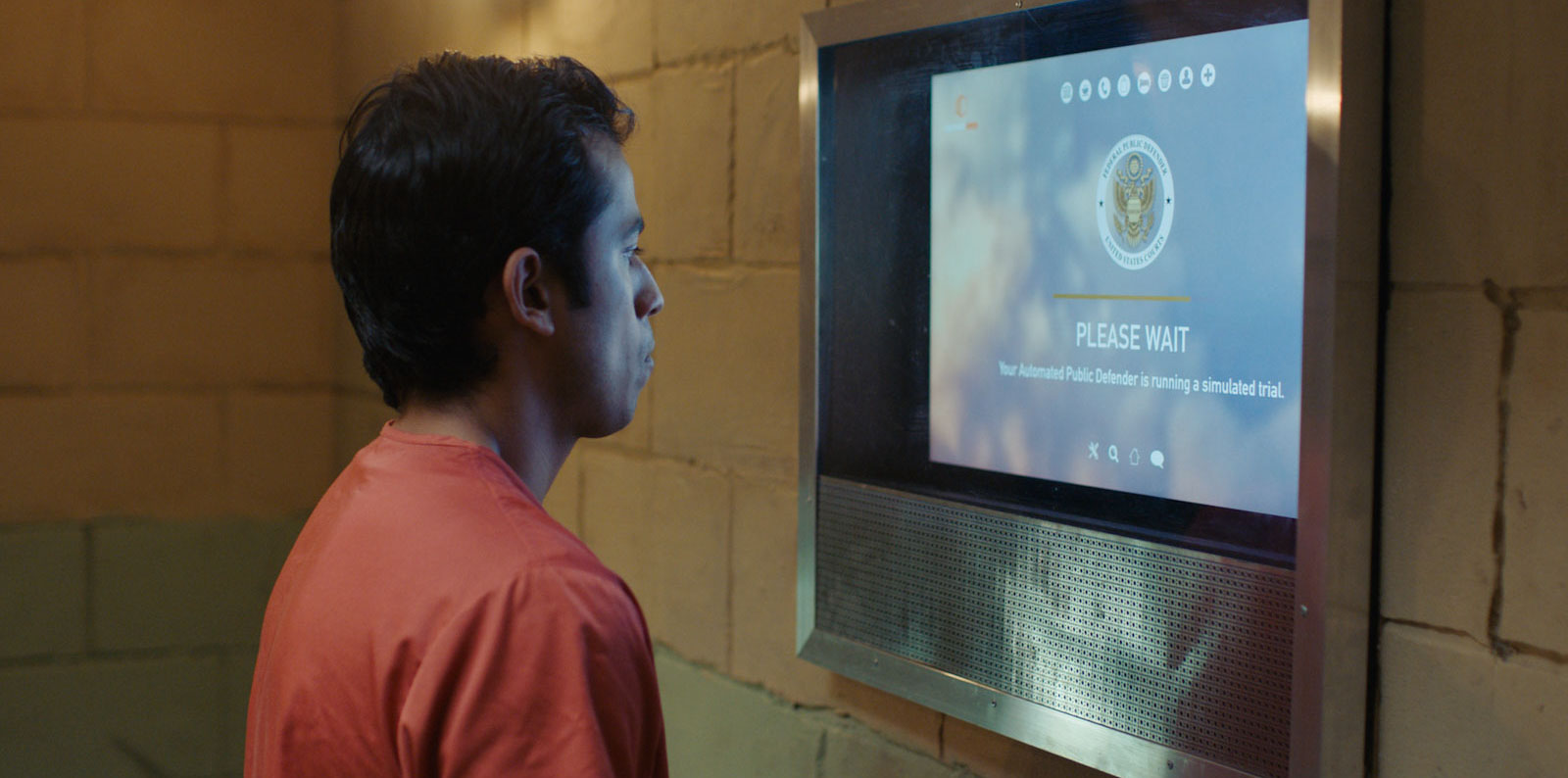By Dennis Hartley
(Originally posted on Digby’s Hullabaloo on December 10, 2022)
It’s time for the obligatory list, culled from the first-run films I reviewed in 2022:

Day by Day – Felix Herngren’s dramedy (scripted by Tapio Leopold) is a delightful, life-affirming road movie from Sweden about…death. Before a terminally ill man (Sven Wallter) can make his getaway for a solo trip to a Swiss assisted-suicide clinic, several of his longtime friends at the retirement home catch wind of his plans, and it turns into a group outing (much to his chagrin). Lovely European travelogue (nicely photographed by Viktor Davidson). Funny and touching (yes …I laughed, I cried). Sadly, Wallter passed away soon after the film wrapped, adding poignancy to his performance.

Drunken Birds – Ivan Grbovic’s languidly paced, beautifully photographed culture clash/class war drama (Canada’s 2022 Oscar submission) concerns a Mexican cartel worker who finds migrant work in Quebec while seeking a long-lost love. Grbovic co-wrote with Sara Mishara. Mishara pulls double duty as DP; her painterly cinematography adds to the echoes of Terrence Malick’s Days of Heaven. It also reminded me of Ang Lee’s The Ice Storm; a network narrative about people desperately seeking emotional connection amid a minefield of miscommunication. (Streaming on Prime Video)

Hallelujah: Leonard Cohen, A Journey, A Song – Several years ago, I saw Tom Jones at the Santa Barbara Bowl. Naturally, he did his cavalcade of singalong hits, but an unexpected moment occurred mid-set, when he launched into Leonard Cohen’s “Tower of Song”. Jones’ performance felt so intimate, confessional, and emotionally resonant that you’d think Cohen had tailored it just for him. When Jones sang, I was born like this, I had no choice/I was born with the gift of a golden voice, I “got” it. Why shouldn’t Tom Jones cover a Cohen song? I later learned “Tower of Song” has also been covered by the likes of U2, Nick Cave, and The Jesus and Mary Chain.
A truly great song tends to transcend its composer, taking on a life of its own. The reasons why can be as enigmatic as the act of creation itself. In an archival clip in Dan Geller and Dayna Goldfine’s beautifully constructed documentary, the late Cohen muses, “If I knew where songs came from, I’d go there more often.” Using the backstory of his beloved composition “Hallelujah” as a catalyst, the filmmakers take us “there”, rendering a moving, spiritual portrait of a poet, a singer-songwriter, and a seeker. (Streaming on Prime Video)

The Integrity of Joseph Chambers – This psychological thriller has a slow burn, but really gets under your skin. Early one morning, a white-collar father of two (Clayne Crawford) rolls out of his warm bed and readies himself to go deer hunting. His half-awake (and concerned) wife reminds him he has never gone hunting by himself and has limited experience with firearms. Undeterred, he insists that the best way to get experience is to “just go out and do it.” After stopping at a friend’s house to borrow his pickup truck (and a rifle), he heads for the woods. What could possibly go wrong? Anchored by Crawford’s intense performance, writer-director Robert Machoian has fashioned a riveting tale infused with a dash of Dostoevsky and a dollop of Deliverance.

The Man in the Basement (aka L’Homme de la Cave) – There are fifty shades of Chabrol in Philippe Le Guay’s “neighbor from hell” thriller (scripted by Le Guay with Gilles Taurand and Marc Weitzmann). One of my favorite contemporary French actors, François Cluzet (Tell No One) plays a quiet fellow who buys the unused basement of an upper-crust couple’s Parisian apartment, presumably for storage. With the ink barely dry on the deed, the couple realize too late that he clearly intends to live in the cellar (sans plumbing). It gets worse when they find out that his online persona is every liberal’s nightmare. Always check references!

Moonage Daydream – David Bowie invented the idea of “re-invention”. It’s also possible that he invented a working time machine because he was always ahead of the curve (or leading the herd). He was the poster boy for “postmodern”. Space rock? Meet Major Tom. Glam rock? Meet Ziggy Stardust. Doom rock? Meet the Diamond Dog. Neo soul? Meet the Thin White Duke. Electronica? Ich bin ein Berliner. New Romantic? We all know Major Tom’s a junkie…
Of all his personas, “David Jones” is the most enigmatic; perhaps, as suggested in Brett Morgen’s trippy film, even to Bowie himself. More On the Road than on the records, Morgen’s kaleidoscopic thesis is a globe-trotting odyssey of an artist in search of himself. This is anything but a traditional, linear biography. Morgen doesn’t tell you everything about Bowie’s life, he simply shows you. Even if David Jones remains elusive as credits roll, the journey itself is absorbing and ultimately moving. Think of it as the Koyaanisqatsi of rock docs. (Full review) (Streaming on Amazon Prime)

My Love Affair With Marriage – It’s a safe bet that the most oft-asked question throughout history (well, after “Where’s the restroom?”) is “What is love?”. Philosophers, poets, writers, psychologists and even scientists have tackled this age-old query, and come up with just as many disparate explanations. This lack of consensus informs the clever conceit behind Latvian animator Signe Baumane’s mixed-media feature.
Baumane’s semi-autobiographical study follows “Zelma” as she navigates the various passages of sexual self-awareness from childhood to adulthood…which then presents her with the complexities of love and relationships. Zelma’s vignettes are interspersed with neuroscience/biochemistry analyses done in the style of high school educational films (remember those?), with the odd musical number thrown in. Funny, touching, and insightful.

Nude Tuesday – I must warn you: this film (from New Zealand) is complete gibberish. Literally…the dialog is spoken in a made-up language. Frankly, I was fully prepared to find this gimmick annoying, but thankfully a) there are subtitles and b) the film is nonetheless entertaining.
Writer-director Armagan Ballantyne’s off-the wall dramedy concerns middle-aged couple Laura and Bruno (co-screenwriter Jackie van Beek and Damon Harriman), who have hit a roadblock in their marriage. Bruno’s mother browbeats them into attending a couple’s retreat, to rekindle their passion. The resort is lorded over by a free-spirited sex guru (played with aplomb by Jemaine Clement). Vacillating between riotous cringe comedy and surprising sweetness, the film also pokes gentle fun at “self-actualization” culture (reminiscent of Bill Persky’s 1980 satire Serial).

Sweetheart Deal – Dopesick and finding temporary solace from an RV-dwelling man of means by no means dubbed “The Mayor of Aurora Avenue”, four sex workers (Kristine, Sara, Amy, and Tammy) strive to keep life and soul together as they walk an infamous Seattle strip. With surprising twists and turns, Elisa Levine and Gabriel Miller’s astonishingly intimate portrait is the most intense, heart-wrenching, and compassionate documentary I have seen about Seattle street life since Streetwise.

Polystyrene: I Am A Cliché – I reckon few artists consciously set out to be “groundbreaking” or “influential”, but whether by accident or design, 19-year-old Poly Styrene came out of the gate flying in the face of fashion. She not only fearlessly waded into the male-dominated punk world of the late 70s (which, despite its association with an anti-racist, anti-fascist ethos, was an overtly “laddish” club), but did so as a woman of color (the Anglo-Somali singer-songwriter is credited as the progenitor of the Riot Grrrl and Afro-Punk movements).
If you’ve ever seen X-Ray Spex’s video for “Oh Bondage Up Yours”, you know that Styrene had a charismatic presence and a unique, powerful voice that belied her diminutive stature. With its “fuck you” lyrics and strident vocal, that song is now a feminist punk anthem; but according to this absorbing documentary (co-directed by narrator Celeste Bell and Paul Sng, with additional narration by Ruth Negga) Styrene never really identified as a feminist or a punk. A lovely portrait of a troubled but inspiring artist. (Full review). (Streaming on Hulu)
Honorable mentions:
A couple of 2022 releases I didn’t initially review, but recommend:

Kimi– I somehow missed this tight little thriller from Steven Soderbergh when it dropped on HBO Max earlier this year, but stumbled across it recently (so much content, so little time). Zoe Kravitz gives a terrific performance as an agoraphobic tech who works from home for a corporation called Amygdala, monitoring their A-I product “Kimi” (rhymes with “Siri”). When she happens across a digital file that may have captured audio of a woman’s murder, her world gets turned upside down. A clever mash-up of Rear Window, Repulsion, and The Conversation, with a whiff of The Parallax View… updated for the age of pandemic paranoia. David Keopp scripted.

Confess, Fletch – First, my confession that I’ve always had a soft spot for the first Fletch film with Chevy Chase (never saw Fletch Lives). But I was intrigued to see a resurrection of the franchise 33 years after the previous entry, and pleasantly surprised at how entertaining Greg Mottola’s adaptation of Gregory McDonald’s eponymous 1976 comedy-mystery was. I swear Jon Hamm is channeling Cary Grant throughout, and he is ably supported by a delightful cast that includes Marcia Gay Harden, Kyle MacLachlan, and Roy Wood, Jr. Granted, it’s lightweight fare, but I haven’t laughed this hard at a modern comedy for grown-ups in quite some time.
…and just for giggles
Holy Krampus…have I really been writing reviews here for 16 years?! I was but a child of 50 when I began in November of 2006 (I was much older then, but I’m younger than that now). Here are my “top 10” picks for each year since I began writing for Hullabaloo.
(You may want to bookmark this post as a handy reference for movie night).
[Click on title for full review]
2007
Eastern Promises, The Hoax, In the Shadow of the Moon, Kurt Cobain: About a Son, Michael Clayton, My Best Friend, No Country for Old Men, Pan’s Labyrinth, Paprika, Zodiac
2008
Burn After Reading, The Dark Knight, The Gits, Happy Go Lucky, Honeydripper, Man on Wire, Milk, Slumdog Millionaire, Vicky Cristina Barcelona, The Visitor
2009
The Baader Meinhof Complex, Inglourious Basterds, In the Loop, The Limits of Control, The Messenger, A Serious Man, Sin Nombre, Star Trek, Where the Wild Things Are, The Yes Men Fix the World
2010
Creation, Inside Job, Joan Rivers: A Piece of Work, Little Big Soldier, A Matter of Size, My Dog Tulip, Nowhere Boy, Oceans, The Runaways, Son of Babylon
2011
Another Earth, Certified Copy, The Descendants, Drei, Drive, The First Grader, Midnight in Paris, Summer Wars, Tinker/Tailor/Soldier/Spy, The Trip
2012
Applause, Dark Horse, Killer Joe, The Master, Paul Williams: Still Alive, Rampart, Samsara, Skyfall, The Story of Film: an Odyssey, Your Sister’s Sister
2013
The Act of Killing, Big Star: Nothing Can Hurt Me, Computer Chess, 56 Up, The Hunt, Mud, The Rocket, The Silence, The Sweeney, Upstream Color
2014
Birdman, Child’s Pose, A Coffee in Berlin, The Grand Budapest Hotel, Kill the Messenger, The Last Days of Vietnam, Life Itself, A Summer’s Tale, The Wind Rises, The Theory of Everything
2015
Chappie, Fassbinder: Love Without Demands, An Italian Name, Liza the Fox Fairy, Love and Mercy, A Pigeon Sat on a Branch Reflecting on Existence, Song of the Sea, Tangerines, Trumbo, When Marnie Was There
2016
The Curve, Eat That Question, Hail, Caesar!, Home Care, Jackie, Mekko, Older Than Ireland, Snowden, The Tunnel, Weiner
2017
After the Storm, Bad Black, Becoming Who I Was, Blade Runner 2049, A Date for Mad Mary, Endless Poetry, I Am Not Your Negro, Loving Vincent, The Women’s Balcony, Your Name
2018
Big Sonia, BlacKkKlansman, Fahrenheit 11/9, The Guilty, Let the Sunshine In, Little Tito and the Aliens, Outside In, Ryuichi Sakamoto: Coda, Wild Wild Country, Won’t You Be My Neighbor?
2019
David Crosby: Remember My Name, Dolemite is My Name, Driveways, The Edge of Democracy, The Irishman, Monos, Once Upon a Time in Hollywood, Putin’s Witnesses, This is Not Berlin, Wild Rose
2020
Bloody Nose, Empty Pockets, Capital in the Twenty-First Century, Desert One, Love Spreads, Never, Rarely, Sometimes, Always, Pacified, 76 Days, Tommaso, The Trial of the Chicago 7, Weathering With You
2021
Brian Wilson: Long Promised Road, Fire Music, Heist of the Century, Kurt Vonnegut: Unstuck in Time, The Last Film Show, The Paper Tigers, The Pebble and the Boy, Surge, Waikiki, Whelm





































